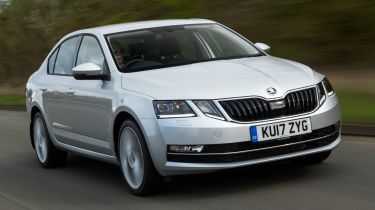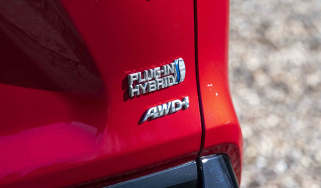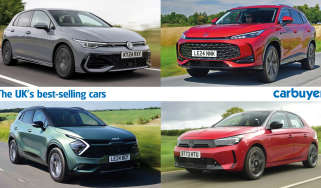Best way to finance a used car
There’s a huge range of finance deals available for buying used cars, so which is best for you? Our guide explains how each type works

Car finance is big business, which means there are now just as many deals and options available to used-car buyers as those looking for a brand-new one. On the majority of used-car websites, there will likely be a finance calculator or a similar tool to help work out what you can afford, and thanks to an abundance of low interest deals, the results may surprise you.
Usually, car supermarkets and larger franchised dealerships offer the most competitive, low-interest finance packages. But if your perfect used car is sitting on the forecourt of a smaller dealership, and they aren’t able to offer an appealing finance option, a personal loan could be another way to update or upgrade what you’re driving.
 What is GAP insurance and why do you need it?
What is GAP insurance and why do you need it?
Regardless of what you go for, it can be beneficial to take out ‘GAP insurance’, which covers the difference between the cash value of the car and how much finance you still need to pay in the event of it being damaged – amounts that can differ considerably. If the car ends up being written off, it’ll cover the amount you owe on the lease, car loan or other finance plan.
An essential step when financing a new or used car is to compare the APR, or Annualised Percentage Rate. From this, you’ll know how much interest will be added onto the finance and what you’ll have to pay.
Used car dealer finance
Larger, networked dealers may charge higher prices than smaller garages or private sales, but buying a car from one usually comes with the peace of mind of rigorous inspections and condition checks, a warranty and a full service history.
Nearly new, ex-demonstrator models are often appealing to consumers as they typically won’t have covered many miles, are high-spec versions and are sold with a hefty discount. A car is normally considered ex-demonstrator if it’s been used by management or by customers on test drives.
Many franchised and official dealerships have their own finance department. We have a detailed guide to car finance, but at least one of the following is normally available.
Personal Contract Purchase (PCP): With a PCP, you pay an initial deposit, followed by a set number of monthly payments (typically over three, four or five years). At the end of the contract term, you have the option of paying a ‘balloon payment’ to buy the car outright, or you can return the car to the dealer. Choose the latter and you’ll be able to put the equity you’ve built up towards the deposit for your next car.
Hire Purchase (HP): This type of finance looks similar to a PCP deal, but the final monthly repayment makes you the outright owner of the car, with no final ‘balloon payment’ required. This means you’ll pay more each month, because you’re paying for the car itself rather than covering depreciation costs.
 PCP vs HP – which type of car finance is right for you?
PCP vs HP – which type of car finance is right for you?
Car supermarket finance
While official dealerships offer a used-car buying experience very close to buying a brand-new car, they also tend to be the most expensive, as dealerships aim for a higher profit margin and tend to sell nearly new cars. If you have a slightly lower budget, or think you can get a better deal, car supermarkets can strike a good balance and typically offer finance, too.
Car supermarkets operate from large sites, with hundreds or even thousands of cars available, and they often sell hundreds each month, allowing them to reduce prices. While this can make buying a car cheaper, there’s also rarely any room for negotiating the price and the purchasing experience and standard of aftersales care can be a little lower.
Both PCP and Hire Purchase are typically offered by car supermarkets, although these are usually provided by third-party lenders. Always check they’re regulated by the Financial Conduct Authority (FCA) for reassurance before going ahead.
Online used and new-car retailers such as our sister site Buyacar can also offer highly competitive deals on car finance. Representative finance examples are available on the website, with the option to apply for finance in less than five minutes and get a no-obligation quote.
Personal loans
If you’ve found the perfect used-car at a smaller dealership but they are unable to offer you an appealing finance deal, then a personal loan could be an alternative option.
The most important consideration is whether to take out a secured or unsecured loan. If a personal loan is secured, an asset such as your house is used as collateral. If you’re unable to repay the loan, this could ultimately result in your house being repossessed. Unsecured personal loans don’t require collateral, but need you to have a good credit rating. They can potentially have higher interest rates and tend to be for smaller amounts, too. If you're young or have a poor credit history, a guarantor loan might be one route to getting a loan, but bear in mind that there are more risks involved in this route too.
When buying a used car on finance, our recommendation is to use a deal designed for purchasing a car, rather than a personal loan. This is because the APR is usually lower and if something goes wrong, the most you’re likely to have repossessed is the car itself.
Used car finance tips
No matter which finance option you choose, always bear in mind that you’re borrowing money and this carries inherent risk. You must always be sure that you can afford the repayments and meet them on time, even if your circumstances were to change. While there is sometimes the option to end a contract early, doing so can incur significant fees.
Ensure you read and understand all the terms and conditions of any agreement you enter into and always try to get the lowest APR (interest) on offer.
There are a number of companies that specialise in finance deals for people with poor credit ratings but be careful, as these may charge high interest rates.
Whichever method you decide on, if your car is written off, a GAP insurance policy can save you thousands.
Always make sure to shop around, as interest rates can vary wildly when getting finance on a used car – it could even be worth getting a different car altogether if better finance is available elsewhere.
For more guidance, why not read our guide to the best used cars you can buy, or see our used car buying checklist for everything you need to know.
Car finance made simple
- New car finance explained
- Used car finance: top tips
- PCP car finance explained
- HP car finance explained
- PCH car finance explained
- PCP vs HP: car finance options
- PCP car finance on used cars
- Car finance negative equity explained
- How to refinance a car
- Getting car finance with bad credit
- What are guarantor loans?
- What is an HPI check?
- What is GAP insurance?
- Van finance explained
- Car finance made simple
Recommended

Best car leasing deals 2025: this week’s top PCH offers

Petrol and diesel car ban relaxed with hybrids permitted beyond 2030

Classic car tax exemption: which historic vehicles qualify?
Most Popular
Tips & advice

Car dashboard warning lights: what does each symbol mean?

Electric car charging stations: public networks, charger types, apps and maps







